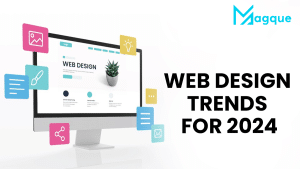Are you tired of browsing websites that feel like a one-size-fits-all experience? Fret not, because the future of website personalization is here to revolutionize how you interact with the digital world. Picture this: a website that adapts to your preferences, anticipates your needs, and tailors every interaction to make you feel at home. It’s like having a personal butler in the virtual realm, catering to your every whim.
Why Personalization Matters
In today’s fast-paced digital landscape, user experience reigns supreme. Visitors to your website expect seamless navigation, relevant content, and an intuitive interface. They want more than just information; they want an experience that resonates with them. This is where website personalization comes into play.
Imagine walking into a store, and the moment you step in, the staff knows your name, favourite products, and even your preferred payment method. That level of personalization creates a sense of belonging and loyalty. Similarly, personalizing the user experience can significantly impact Engagement, conversion rates, and customer satisfaction in the digital realm.
The Power of Tailored User Experiences
Website personalization is not just a buzzword; it’s a game-changer. Here’s how it can transform your online presence:
1 Enhanced Engagement
Imagine a visitor landing on your website and immediately finding content that aligns with their interests and needs. They are likelier to stay longer, explore, and engage with your brand. Personalized recommendations and tailored messaging can captivate your audience, reducing bounce rates and increasing time spent on your site.
2 Improved Conversions
Personalization goes beyond surface-level customization. It delves into user behaviour, preferences, and history. You can serve relevant product recommendations, promotions, and incentives by understanding what each visitor is looking for. This targeted approach boosts conversion rates and drives sales.
3 Building Trust and Loyalty
Users who feel understood and valued are more likely to trust your brand. Repeat visits and loyal customers are the lifeblood of any business. Personalization creates a bond between your website and the user, fostering long-term relationships and customer loyalty.
4 Data-Driven Insights
Website personalization relies on data collection and analysis. By gathering insights into user behaviour, you can continually refine your strategies. It’s like having a personal GPS for your website, guiding you towards the best routes to success.
The Road Ahead: Future Trends in Website Personalization
As we enter the future, the possibilities for website personalization are boundless. Machine learning and AI algorithms will be pivotal in understanding user preferences and predicting their actions. Here’s a glimpse of what’s on the horizon:
1 Real-Time Personalization
Websites will evolve to provide real-time personalization. They’ll instantly adapt to user behaviour, now offering tailored content and experiences.
2 Voice-Activated Personalization
With the rise of voice assistants, websites will become voice-friendly, responding to user commands and providing customized responses.
3 Hyper-Personalization
Hyper-personalization will take customization to the next level. Websites will consider individual preferences, location, and the user’s emotional state to create a unique experience.
4 Enhanced Security
With greater personalization comes the need for heightened Security. Websites will invest in advanced security measures to protect user data and maintain trust.
Stay Ahead of the Curve
In conclusion, website personalization’s future involves tailoring user experiences to unprecedented levels. It’s about making your visitors feel seen, understood, and valued. As technology advances, embracing these trends will be crucial for businesses looking to thrive in the digital landscape. And be sure to explore Magque, your go-to source for the latest and most intriguing updates in the realms of informative tips & reviews!
FAQs
Q1. What is website personalization, and why is it essential for the future of online businesses?
Answer: Website personalization is customizing a website’s content, layout, and features to cater to individual users’ preferences and needs. It’s essential for the future of online businesses because it enhances user engagement, increases conversion rates, and fosters customer loyalty by providing tailored experiences that resonate with visitors.
Q2. How does website personalization work, and what data is used to personalize user experiences?
Answer: Website personalization relies on collecting and analyzing user data, including browsing history, behaviour, demographics, and preferences. This data is then used to create personalized content, product recommendations, and targeted marketing messages. Machine learning and AI algorithms are crucial in determining each user’s most relevant content and experiences.
Q3. What are the benefits of implementing website personalization for businesses?
Answer: Implementing website personalization offers several benefits for businesses, including increased user engagement, higher conversion rates, improved customer satisfaction, reduced bounce rates, and enhanced brand loyalty. It also provides valuable data insights for optimizing marketing strategies and user experiences.
Q4. Are there any privacy concerns associated with website personalization?
Answer: Yes, privacy concerns exist in website personalization. Collecting user data for personalization purposes must be done transparently and with consent. Businesses must prioritize data security and comply with data protection regulations to ensure user information is safe and used responsibly.
Q5. What are some emerging trends in website personalization for the future?
Answer: Emerging trends in website personalization include real-time personalization, voice-activated personalization, hyper-personalization, and enhanced security measures. Real-time personalization adapts content instantly, voice-activated personalization responds to user voice commands, hyper-personalization considers individual emotions and context, and enhanced security safeguards user data in the age of increasing personalization. These trends aim to provide even more tailored and secure user experiences.
Read Also This:- E-commerce Trends: Personalization and User Experience



















